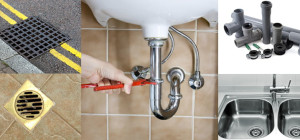 Never put off needed water heater repairs! Water from any leaking appliance risks damage to a home’s framework and concrete surfaces, as well as eventual mold growth. Insects and rodents are also attracted to standing water in a home; these pests are bothersome to people and pets, and often chew through a home’s wood framework, insulation, and electrical wiring.
Never put off needed water heater repairs! Water from any leaking appliance risks damage to a home’s framework and concrete surfaces, as well as eventual mold growth. Insects and rodents are also attracted to standing water in a home; these pests are bothersome to people and pets, and often chew through a home’s wood framework, insulation, and electrical wiring.
Water heater repair costs are also often cheaper than purchasing a new appliance which usually ranges around $1000, and the longer you put off needed repairs, the more extensive and expensive they become. Timely water heater repairs also ensure comfortable showers and clean dishes!
Average water heater repair costs typically range between $250 and $550, with most homeowners paying around $275-$300. Before you put off those costs by attempting DIY water heater repair, or assume a broken water heater is not a serious issue, note some vital information about potential damage caused by a broken water heater and why this work is best left to the pros. You might also find it helpful to review common causes of a broken water heater, so you know what to expect by way of needed repairs.
4 Common Causes of Water Heater Damage
To ensure you know what to expect by way of repair costs, consider four common causes of water heater damage. It’s also good to familiarize yourself with signs of needed repairs so you know when to call a plumbing contractor near you for an inspection and estimate!
- Internal metal rods keep a water heater from rusting. These rods are considered sacrificial, meaning they’re meant to corrode or rust over time, after which they need replacing. When these rods break down, your water heater might not heat water as it should, or you might notice rusty water from the taps.
- A rattling or rumbling sound from the water heater often indicates a buildup of damaging sediment. As water heats, its mineral deposits soften and collect around the tank floor. As water cools, that sediment solidifies, interfering with the heating process and damaging the heating coil and holding tank.
- If you notice unpleasant odors from the home’s hot water taps, this might indicate corrosive air. Water heaters pull in air as part of the combustion process; if air quality is poor, it might corrode the tank and heating element. Keep items like bleach, ammonia, paint, sealants, and other such bothersome chemicals away from the home’s water heater, and ensure there is proper ventilation around the appliance as well.
- Repeated repairs to the same internal parts might indicate overuse. Water heaters are available in different sizes, to accommodate varying hot water demand. Investing in an undersized or underpowered water heater might save money on installation costs but often results in overuse, premature breakdown, and repeated repairs. A plumbing contractor can typically recommend the best size water heater for your family.
Don’t Avoid Needed Water Heater Repairs!
No homeowner looks forward to hearing a plumber tell them that their water heater needs costly repairs but, no matter those costs, you don’t want to avoid necessary fixes! Most water heater repairs only get more extensive and costlier the longer they’re ignored; as sediment builds up along a water heater tank, for example, it might eventually corrode the tank body and lead to water leaks.
As another example, corrosive air inside a water heater circulates through your home’s plumbing pipes every time you turn on a hot water tap. If air is so corrosive that it damages a water heater, consider what it might also do to those pipes! Ensure you have a plumber check the condition of your home’s plumbing pipes and fixtures after water heater repairs, so you can replace corroded connectors or other damaged pieces.
Drywall, wood framing and subflooring, carpet and its underlying padding, and other building materials also absorb water leaking from a damaged water heater. That moisture softens and weakens drywall and wood framing while increasing the risk of mold growth, especially underneath carpeting and behind a home’s walls. Replacement materials and mold cleanup are both typically quite expensive, which is another reason it’s vital that you invest in water heater repair when needed!
Should You Pay for Water Heater Repair, or Replace It?
The average cost to replace a water heater is typically around $850, including the appliance and installation fees. Also, note that most water heaters have an expected lifespan of about eight to twelve years.
This information can help you decide if you should pay for water heater repairs or replace that appliance. For example, if your current water heater is more than seven years old and needs $450 in repairs, note that you might need to pay twice that amount for a new appliance in just a year or two!
An updated, energy-efficient appliance might also reduce your utility costs. A tankless water heater is also an excellent choice for ensuring everyone in the home has hot water when needed, or if the water heater is rarely used. If you travel often, as an example, you don’t need your water heater to cycle on when you’re not home; to eliminate wasted energy, consider a tankless water heater that only heats water when needed.
Water Heater Repair: When to DIY and When to Call the Pros
If you have a gas water heater and notice that the pilot light goes out continuously, shut off the gas valve and clean out the pilot light with a pipe cleaner. Block anything that might create a nearby breeze while ensuring the pilot light gets enough air to maintain combustion. These steps might keep the pilot light functioning properly.
If an electric water heater doesn’t seem to cycle on after tripping a circuit breaker or sitting unplugged for some time, note if there is a reset button on the appliance itself. This button is typically red and located near a thermostat or valve. Hitting that reset button after restoring power might get the water heater functioning again.
Other water heater repairs are best left to the pros, however, as water heaters are complicated appliances with dangerous power sources. Working with electrical wiring and water risks shock and even electrocution, and improper repairs to a gas water heater can mean a future gas leak. A professional plumber will also typically guarantee their work, so you know they’ll last and that you can count on a functioning water heater in the home.







